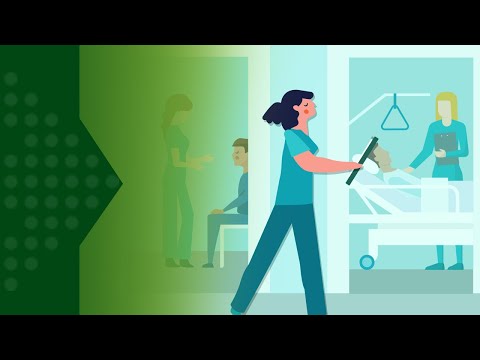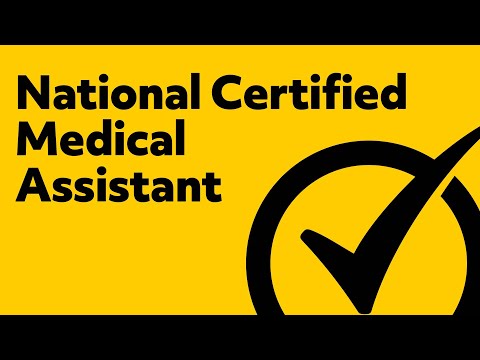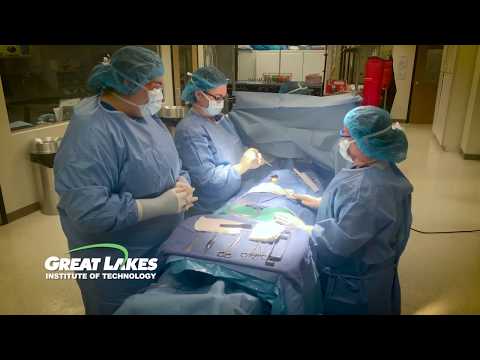What Skills Do You Need to Be a Medical Assistant?
Contents [show]
Being a medical assistant is a challenging and rewarding career choice. The job requires a unique blend of clinical, administrative, and interpersonal skills. Here’s a look at some of the skills you’ll need to succeed in this field.
Checkout this video:
Job Description
Medical assistants perform a variety of administrative and clinical tasks to support the work of physicians and other health professionals. Their duties vary with the location, specialty, and size of the practice.
Most Medical Assistants have completed a postsecondary educational program that lasts from 1 to 2 years. Many programs include an externship, which allows students to gain hands-on experience in a healthcare setting. Some states have certification programs for medical assistants, although certification is not required for all positions.
Medical assistants typically need to be comfortable performing tasks that require manual dexterity, such as drawing blood or giving injections. They also must be able to take medical histories and record vital signs accurately. As they will be dealing directly with patients, they need to have good communication skills and must be compassionate and tactful. Good customer service skills are important in this occupation because medical assistants often interact with patients who are seeking treatment for various conditions.
Duties and Responsibilities
A medical assistant is a person who has been trained to perform many of the routine office and clinical duties of a physician’s office.
Medical assistants are multi-skilled health professionals specifically trained to work in outpatient facilities such as medical offices and clinics. JOB DESCRIPTION DUTIES Medical assistants perform both clinical and administrative duties and often work side by side with physicians, nurses, and other healthcare professionals. Their duties vary from day to day and from job to job, but most include some combination of the following:
Clinical duties:
• interviewing patients
• measuring patients’ vital signs
• recording patients’ medical histories
• preparing patients for examination
• explaining treatment procedures to patients
• assisting the physician during examinations
• collecting and preparing laboratory specimens
• performing basic laboratory tests
• scheduling patient appointments • applying casts & splints • taking electrocardiograms (EKGs) • caring for minor wounds Administrative duties: • handling correspondence • updating patient records • billing & coding information for insurance purposes • ordering office & medical supplies Most medical assistants have postsecondary education such as a certificate or diploma from an accredited program. Some states have certification requirements for medical assistants.
Qualifications and Skills
Education and training requirements for medical assistants vary by state, but most states require medical assistants to have at least a high school diploma or equivalent. Some states also require medical assistants to complete a formal training program and/or pass an exam to be certified.
There are many formal training programs for medical assistants, which typically last about one year. These programs are often offered at community colleges, technical schools, and universities. Some programs may offer internship opportunities that allow students to gain hands-on experience in the field.
Medical assistants must have strong communication and interpersonal skills. They must be able to effectively communicate with patients, doctors, and other healthcare professionals. They must also have strong analytical and problem-solving skills to be able to handle the various tasks they are responsible for.
Education and Training
The majority of medical assistants have postsecondary education such as a certificate, diploma from an accredited program, or an associate’s degree in medical assisting. Some states require certification and/or licensure to work as a medical assistant
Certification
There are a handful of professional organizations that offer certification for medical assistants, but it is not required in order to practice. The certification process usually involves passing a written exam, as well as a skills assessment. Once you are certified, you will need to recertify every few years in order to maintain your credential.
Salary and Job Outlook
Medical assistants are in high demand and the job outlook is excellent. According to the Bureau of Labor Statistics, employment of medical assistants is projected to grow 19 percent from 2018 to 2028, much faster than the average for all occupations.1 The median annual wage for medical assistants was $33,610 in 2018.2
With a strong job market and good salary potential, medical assisting is a great career choice. But what skills do you need to be a successful medical assistant? Let’s take a look.
Excellent Interpersonal Skills
You will be working closely with patients, so it’s important that you have excellent interpersonal skills. You should be able to build rapport quickly and put your patients at ease. You will also be working with a team of other healthcare professionals, so it’s important that you are a good team player.
Great Communication Skills
Good communication is essential in any healthcare role. You will need to be able to communicate effectively with patients, their families, and your colleagues. This means being able to understand and explain complex medical information in a way that everyone can understand. It also means being an active listener so that you can accurately relay information between patients and other healthcare professionals.
Strong Organizational Skills
As a medical assistant you will need to have strong organizational skills. You will be responsible for keeping patient files up-to-date, scheduling appointments, and maintaining treatment records. To do this effectively, you will need to be able to juggle multiple tasks at once and stay calm under pressure.
Detail-Oriented Accuracy is crucial in healthcare, so it’s important that you are detail-oriented. This means paying attention to small details and double-checking your work to make sure that everything is correct. It also means being able to follow instructions precisely and carrying out tasks correctly the first time round.
Career Paths
Medical assistants perform a variety of administrative and clinical tasks to support the work of physicians and other health professionals. They might take medical histories and record vital signs, explain treatment procedures to patients, collect and prepare laboratory specimens, authorize prescription refills, or schedule patient follow-up visits. Many medical assistants have postsecondary education such as a certificate while others have completed formal training programs. Some states require medical assistants to be certified.
Job Opportunities
Medical assistants are in high demand and the job outlook is expected to grow much faster than average in the coming years. If you’re thinking about entering this growing field, you may be wondering what skills you need to be a medical assistant.
While the duties of medical assistants can vary depending on state law and the size and type of facility they work in, there are some core skills that are essential for all medical assistants. These include both clinical skills, such as taking vital signs and performing basic lab tests, and administrative skills, such as scheduling appointments and coding insurance forms.
In addition to these specific skills, medical assistants must also have excellent people skills. They should be able to interact with patients in a caring and professional manner, as well as efficiently communicate with members of the healthcare team. If you have these qualities and are interested in helping others, a career as a medical assistant may be a good fit for you.
Advancement Opportunities
Many medical assistants take on additional responsibilities over time, such as handling more complex clinical tasks or assuming office management duties. With experience, some medical assistants may move into supervisory or administrative positions, or become instructor of medical assisting programs. Some also may choose to pursue a career in another allied health field, such as nursing.
Helpful Resources
If you are considering a career as a medical assistant, you may be wondering what skills you need to be successful in this field. Although each medical office or clinic will have its own unique culture and way of doing things, there are some essential skills that all medical assistants must have.
First and foremost, medical assistants must be excellent communicators. They will be interacting with patients on a daily basis, often during times of stress and anxiety. They need to be able to put these patients at ease, explain procedures and policies clearly, and answer any questions they may have.
Medical assistants also need to be proficient in basic computer skills. They will be using computers to update patient records, schedule appointments, and process insurance forms. In some cases, they may also be responsible for billing and coding.
Organization is another important skill for medical assistants. In a typical day, they may have to keep track of numerous patient files, schedule appointments, maintain inventory levels of supplies, and perform other administrative tasks. Staying organized is essential to keeping the office running smoothly.
Medical assistants also need to possess strong people skills. They will be working closely with patients, staff members, and doctors on a daily basis. It is important that they be able to work well with others and maintain a professional demeanor at all times.
If you have these essential skills, you may just have what it takes to succeed as a medical assistant!







